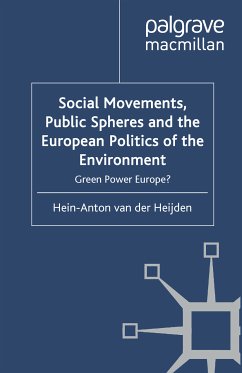The authors study a specific political culture with a rather unique combination of state structure and civil society of which organized environmentalism is an important part. The political culture influences organizational form and organizational ideology as well as the way these organistions are linked to and interact with the goverment. The study shows why international non-government organizations (INGOs) which are successful elsewhere, such as Greenpeace, are unable to establish themselves in some countries.
The study compares Norwegian environmentalism with perspectives and findings from other political systems. More generally, this is also a study on the role of voluntary organizations and civil society in a specific type of democracy. The book throws light on why the working of the Norwegian political system - as well as the Scandinavian political systems more generally - is often misunderstood in the international literature.
Dieser Download kann aus rechtlichen Gründen nur mit Rechnungsadresse in A, B, BG, CY, CZ, D, DK, EW, E, FIN, F, GR, HR, H, IRL, I, LT, L, LR, M, NL, PL, P, R, S, SLO, SK ausgeliefert werden.









